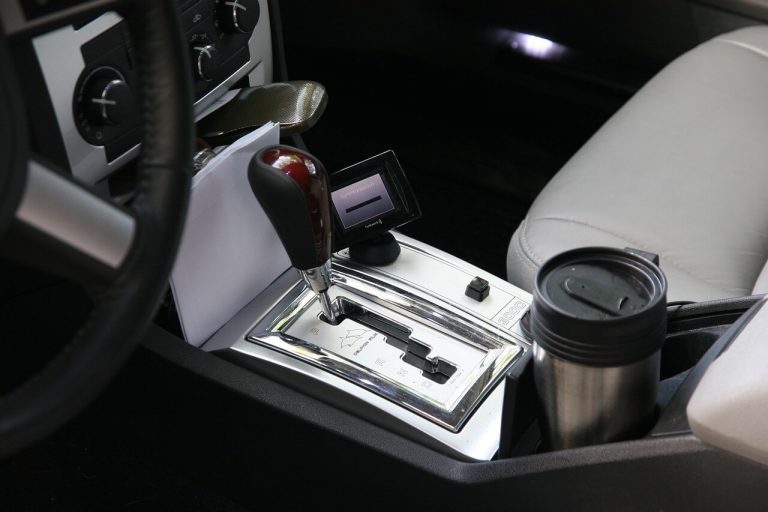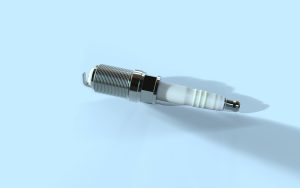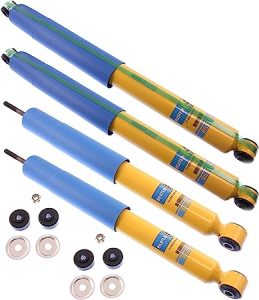Vehicle transmission is an essential part and requires proper maintenance for proper functioning. If your vehicle isn’t driving how it should, there could be an issue with the transmission. It’s essential to pay attention to how your car feels and how it drives so you can spot any problems before they become more serious (and costly!).
Transmission failure is a state that develops and increase over time. Fortunately, there are certain warning signs to watch out for with regards to your car’s transmission health. If you take the initiative to recognize these tell-tale indicators and bring it in for maintenance before it becomes too late, then you can avoid major transmission damage from occurring. In this blog post, I’ll go over how do you know if your transmission is going out and also how to keep it from happening.
Table of Contents
ToggleWhat Causes a Bad Transmission?
Before we go into how do you know if your transmission is going out, let’s look at some of the things that can cause it. The leading causes of a bad transmission are:
Wear and Tear Over Time
The most common cause of transmission failure is wear and tear over time. Automobiles have many moving parts, and as these parts move against each other, friction is created. This friction wears down the parts over time, leading them to malfunction or break completely. It is important to regularly inspect the condition of your vehicle’s transmission system in order to catch any potential problems before they become more serious (and expensive).
Low Fluid Levels
One of the most common causes of transmission failure is low fluid levels. The fluid in your transmission helps keep all of its components working smoothly, so if it’s too low, then those parts won’t be able to function correctly. Make sure that you check your vehicle’s fluid levels regularly and top up as needed — this will help keep your transmission running smoothly and reduce the risk of expensive repairs down the line.
Overheating
Another possible cause of transmission failure is overheating. If your vehicle is driven too hard for too long without taking breaks or allowing it time to cool down, then this can cause severe damage to the transmission — sometimes even leading to complete failure. To prevent this, try not to drive for extended periods at high speeds and give yourself plenty of time for breaks when driving long distances. Additionally, make sure that you have regular maintenance done on your vehicle so that any potential issues with cooling systems or other components can be identified early on and dealt with accordingly.
Lack Of Maintenance
Finally, one other major cause of transmission failure is simply a lack of maintenance or proper care over time. Regular maintenance is essential for keeping all aspects of your vehicle running smoothly and avoiding costly repairs down the line. Make sure that you stick to regular tune-ups and oil changes as recommended by your manufacturer so that any potential problems are identified early on and dealt with appropriately before they become more serious (and more expensive!).
Rough Driving
If you tend to drive aggressively—i.e., you frequently accelerate quickly or brake hard—you may be putting unnecessary stress on your transmission. This type of driving can cause premature wear on the different components, as well as lead to leaks in the seals and gaskets. If you want to avoid transmission problems down the road, it’s best to take it easy on the accelerator and give yourself plenty of time to stop gradually instead of slamming on the brakes at the last minute.
What Are Signs Your Transmission is Going Out?
Now that we’ve gone over how do you know if your transmission is going out and what causes it, let’s move on to some of the warning signs you should be aware of. If any of these problems occur while driving, then it could be an indication that something is wrong with your transmission or other components:

Burning Smell
It might shock you to realize that the transmission may be an issue if you smell burning coming from your car. That pungent odor is likely a transmission smell, and it’s not something to ignore or go away on its own. Many transmission problems can be prevented by getting regular maintenance, but if you notice that unique transmission smell, your transmission has gone wrong or is going bad shortly. Ignoring the smell can mean costly transmission repairs and car downtime, so it’s best to take a moment to diagnose and determine the cause of the transmission smell as soon as possible.
Also Read: How Long Does it Take To Rebuild A Transmission
Check Engine Light
When it comes to transmission failure, one of the significant signs is when your check engine light comes on in your car. This warning light typically indicates that there may be something wrong with the transmission, such as a transmission fluid leak or low transmission fluid. If you notice it is illuminated, it is best to take your car to a mechanic so they can inspect and diagnose the problem. It’s essential to do this because transmission fluid helps to keep vital components lubricated, which can help prevent catastrophic transmission failure. Delaying getting repairs could end up being more costly in the long run.
Grinding or Shaking When in Neutral
If you’re driving your car and it begins to shake or grind when in neutral, this is a significant sign that something is wrong with the transmission. This type of movement can be caused by worn or damaged gears or even low transmission fluid levels. It’s essential to take your car in for repair as soon as possible because this type of issue can quickly lead to more severe problems down the road.
Difficulty Shifting Gears
Many older vehicles may experience transmission issues such as having difficulty shifting gears. Depending on the severity of the problem, this can feel like each shift takes more effort than it should, or even like it’s not shifting at all. This is almost certainly a sign of serious trouble and requires professional repairs. It’s always best to get an issue like this checked out right away as transmission repair could be extremely expensive if left unchecked for too long—it’s better to take preventative measures sooner rather than later.

Transmission Fluid Leak
Transmission fluid leaks can be a troubling sign that your transmission is failing. Noticing any leak in your vehicle means you should get it checked out right away, as a transmission repair will likely save you a lot of money in the long run. One smart thing to do is to check your car’s transmission fluid regularly; if you suspect it is leaking, continue checking so that you know how quickly the issue is progressing.
If you don’t have the tools or space to do these checks yourself, many mechanics also offer complete inspections and diagnostics on transmissions. Your car makes life easier by getting you from one point to another with convenient speed and safety, so treat it right and stay ahead of potential problems with regular maintenance of all its parts!
Strange Noises
If you start hearing strange noises coming from beneath the hood while driving, this could indicate a failing transmission. Some noises are expected – like clicking when shifting gears – but anything else should be investigated by an expert as soon as possible! Everyday noises include grinding, whining, and humming sounds, which indicate an issue with either the gears, fluid levels, or electrical connections within the system itself.
Slipping Gears
Another common sign that your transmission is going out is when it slips from one gear to another without warning or difficulty engaging. This can happen when you notice a sudden decrease in power – like when you press the gas pedal, but nothing happens – or when your car jerks as it shifts gears.
The cause of this can be attributed to low fluid levels in the transmission or worn clutch plates. It’s essential to get this checked out immediately, as it could be indicative of significant internal damage or simply low fluid levels.
Increased fuel consumption
Fuel consumption is an excellent indicator of overall vehicle health, and increased fuel consumption can often be an early sign of transmission failure. Paying attention to your fuel usage is a great way to preempt any significant repair work needed and keep your car running like new.
If you notice your fuel consumption slowly increasing, it’s essential to have your transmission checked out by a certified technician right away. The longer the issue goes untreated, the more costly repairs could be; Regular maintenance could make all the difference in preserving your vehicle’s performance. Don’t forget to have any new issues looked into right away – better safe than sorry!
Also Read: HOW LONG DOES IT TAKE FOR A CAR TO COOL DOWN?
What to do When You Notice Any Of The Above Symptoms?
If you are noticing any of the warning signs listed earlier, it is paramount to properly diagnose a faulty transmission. Start by examining your car for fluid leakage, as this can be an obvious indicator that something’s awry with your vehicle’s transmission system.
Getting the vehicle scanned and monitored by a certified mechanic can also help identify the root cause of transmission problems. In some cases, transmission issues may be caused by something as simple as a worn-out shift cable or a misfiring spark plug, so running diagnostics can be useful in pinpointing potential solutions before more severe damage occurs.
If your vehicle’s symptoms have been confirmed as indicative of an issue with the transmission, depending on make and model, you might need to get it replaced or opt for repairs which could require either fixing or replacing specific components of the system.

Conclusion
Knowing how do you know if your transmission is going out is vital in helping keep your car running smoothly and safely. Pay attention to any strange noises coming from beneath the hood, slipping gears, increased fuel consumption, or fluid leaks. If you suspect something isn’t quite right with the transmission, don’t risk making it worse by driving too long or neglecting to get it checked out by a professional. A certified mechanic can help you assess the situation and find the best course of action for your car’s needs. With regular maintenance and care, your vehicle will thank you later!







